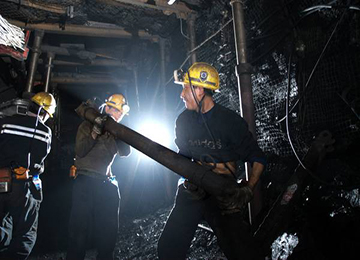Multi-Party Bottoming Coal Price, Import Restrictions Are Expected To Start Again
According to data released by the General Administration of Customs on the 8th, from January to July 2018, China imported 175 million tons of coal, an increase of 22.795 million tons, an increase of 15%; The total amount was 98.89 billion yuan, an increase of 11.1%. Among them, the import of coal in July was 29.06 million tons, an increase of 9.546 million tons, an increase of 49.05%, the highest since January 2014; The import value was 17.85 billion yuan, a year-on-year increase of 63.2%.
Compared with this, domestic thermal coal prices have not been as hot as expected. On August 8, the latest issue of the Bohai Sea thermal coal price index closed at 567 yuan / ton, the same as the previous month. The index has been steadily falling for three weeks, with a cumulative range of RMB 3/ton. The industry believes that this is the result of multi-party bottoming, only the import restriction policy upgrade can suppress the decline.
Summer is often the peak season for coal consumption, but demand release is worse than expected. The data shows that as of August 1, the daily coal consumption of major coastal power plants has been running at more than 800,000 tons for 7 consecutive days, which is not obvious compared with the same period last year. At the same time, port inventories continued to rise. On August 1, the Bohai Sea Port (Qin, Tang, and Tang) stored nearly 25 million tons of coal, and the downstream coastal ports along the Yangtze River also stored coal of about 35 million tons. Affected by factors such as traders panic selling, coal prices fell rapidly.
Under this circumstance, some ports in the north continue to port. However, the Daqin line carried out disease remediation for five consecutive days, and the main coal types in the downstream procurement were relatively short, which stimulated the shortage of individual coal types and stimulated the price of other coal types to stabilize.
Meng Xiangwen, an analyst at Shenwan Hongyuan, believes that the environmental protection and safety supervision policies of coal producing areas have begun to exert their strength, and even the “coal pipe ticket” restriction policy has appeared again in Yulin area. The local base price of coal is strong, but the port coal price is still pending the import restriction policy of the National Development and Reform Commission to suppress the decline. For large coal enterprises, due to the high proportion of long coal, the impact of spot price fluctuations is small, and the comprehensive coal price of coal enterprises remains basically stable.
